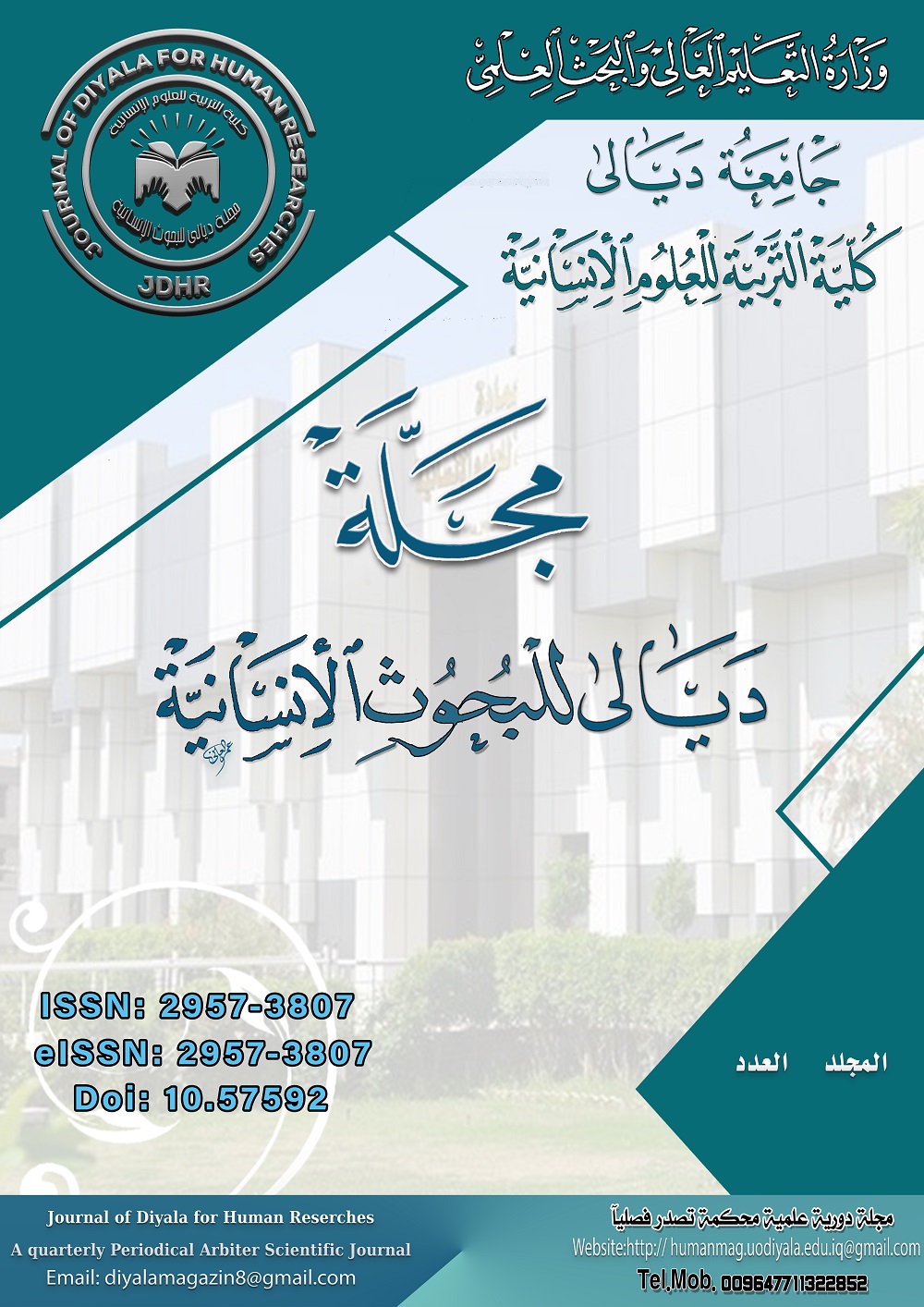A Semantic Study of Qur'anic Expressions of Condolences
DOI:
https://doi.org/10.57592/djhr.v1i96.3021الملخص
Condolence expressions are exemplified one of the important speech acts of expressives. They are used on occasions of bereavement and affliction to achieve three purposes: sharing a bereaved's sorrow by expressing sympathy and regret, giving support and encouragement, and assuring the temporality of life. Accordingly, the bereaved feels comfortable to hear these verbal expressions from others. In societies whose people believe in Heaven and Hell after death, religion is a fertile source of condolence expressions and an essential factor that determines the appropriate selection of them. Certain religions such as Islam provide a very great and effective collection of condolence expressions which are respectively observed by Muslims.
The present study aims to make an investigation and analysis of the semantic formulas used in selected Qur'anic verses concerning condolences. To achieve this aim, the study presents a brief theoretical framework of condolences a practical part involving the analysis of selected Qur'anic verses having condoling messages. It adopts Elwood's (2004) model of semantic formulas of condolences. This model involves five basic formulas plus other peripheral ones. The results show that the main semantic core of these condolences are the inevitability of death and transitory of life. Mostly, positive future-oriented remarks of what is after death are stated such as the return to Allah and meeting the lost beloved's hereafter.
التنزيلات
منشور
إصدار
القسم
الرخصة
الحقوق الفكرية (c) 2024 Prof. Riyadh Tariq Kadhim Al-Ameedi (Ph.D)، Muna Hasseb Hwayed, A PH.D

هذا العمل مرخص بموجب Creative Commons Attribution-NonCommercial 4.0 International License.

